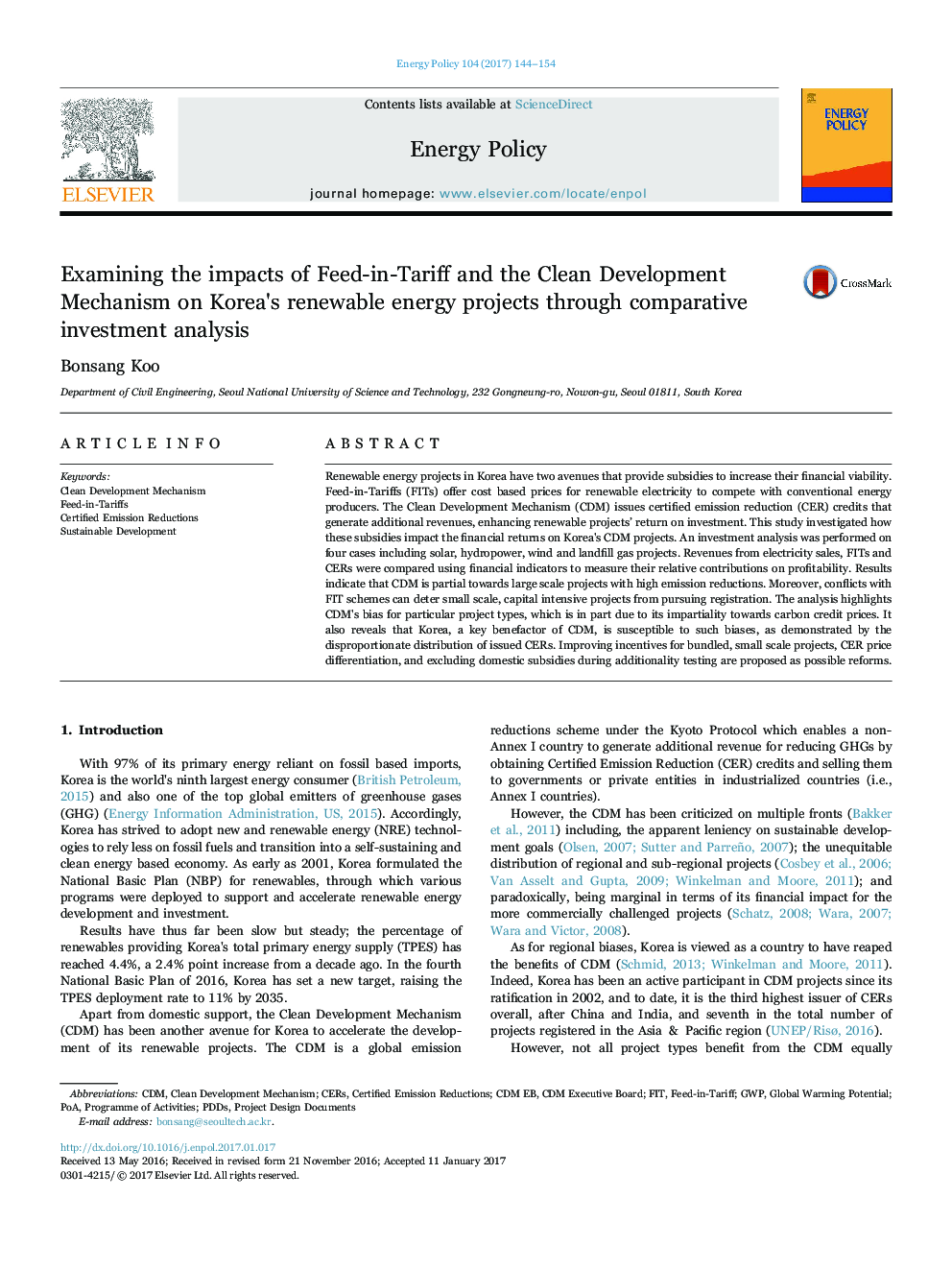| Article ID | Journal | Published Year | Pages | File Type |
|---|---|---|---|---|
| 5106131 | Energy Policy | 2017 | 11 Pages |
Abstract
Renewable energy projects in Korea have two avenues that provide subsidies to increase their financial viability. Feed-in-Tariffs (FITs) offer cost based prices for renewable electricity to compete with conventional energy producers. The Clean Development Mechanism (CDM) issues certified emission reduction (CER) credits that generate additional revenues, enhancing renewable projects' return on investment. This study investigated how these subsidies impact the financial returns on Korea's CDM projects. An investment analysis was performed on four cases including solar, hydropower, wind and landfill gas projects. Revenues from electricity sales, FITs and CERs were compared using financial indicators to measure their relative contributions on profitability. Results indicate that CDM is partial towards large scale projects with high emission reductions. Moreover, conflicts with FIT schemes can deter small scale, capital intensive projects from pursuing registration. The analysis highlights CDM's bias for particular project types, which is in part due to its impartiality towards carbon credit prices. It also reveals that Korea, a key benefactor of CDM, is susceptible to such biases, as demonstrated by the disproportionate distribution of issued CERs. Improving incentives for bundled, small scale projects, CER price differentiation, and excluding domestic subsidies during additionality testing are proposed as possible reforms.
Keywords
Related Topics
Physical Sciences and Engineering
Energy
Energy Engineering and Power Technology
Authors
Bonsang Koo,
